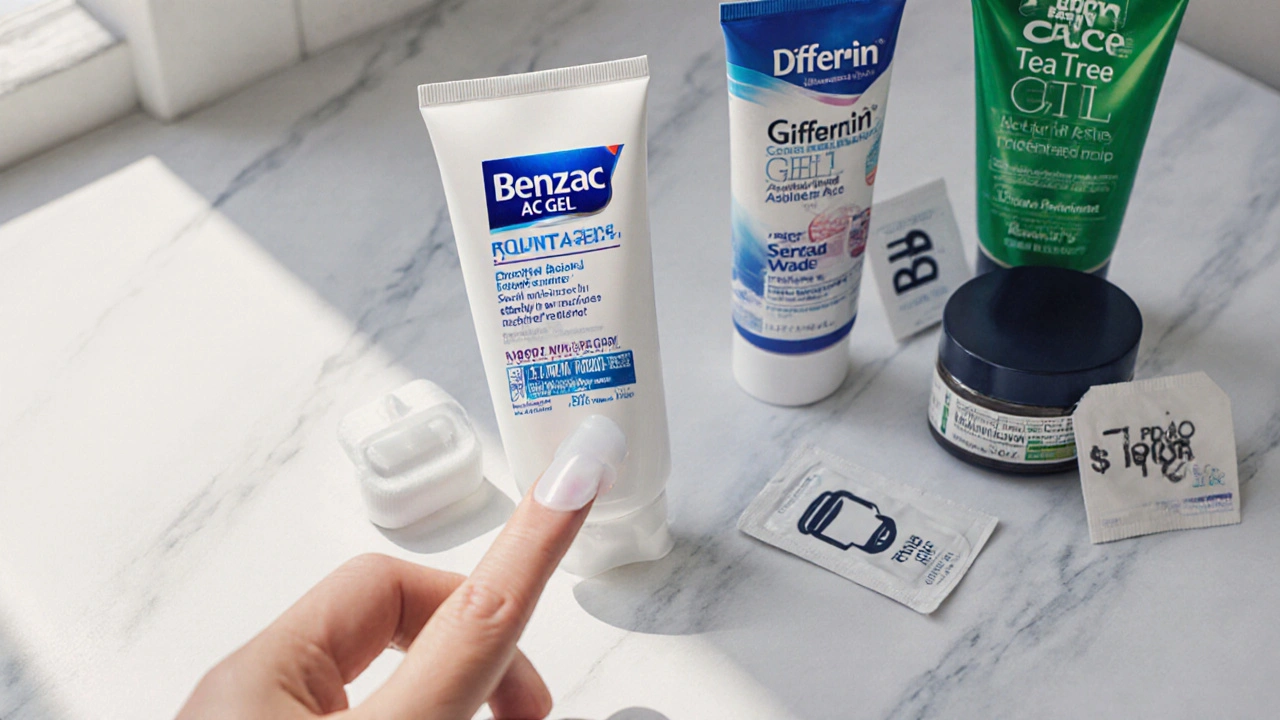Alternatives to Benzac – Your Guide to Acne Relief
When looking at alternatives to Benzac, different products or methods that can replace the benzoyl peroxide gel known as Benzac for treating acne. Also called Benzac alternatives, it helps people who experience irritation or want a different approach.
One of the most common references is Benzac, a brand of benzoyl peroxide. Benzoyl peroxide works by killing acne‑causing bacteria and unclogging pores, but it can also dry out sensitive skin. Because of that, many users search for topical acne treatments, such as salicylic acid gels, azelaic acid creams, and gentle non‑comedogenic moisturizers. These options are often milder and can be combined with daily cleansing routines.
Another major group includes oral antibiotics, like doxycycline or minocycline, which target deeper bacterial infection and reduce inflammation. Oral antibiotics are typically prescribed for moderate to severe acne that doesn’t respond to topicals alone. They are useful when the skin barrier needs extra support, but they require careful monitoring for resistance and side effects.
For long‑term control, many dermatologists recommend retinoids, either in cream form (adapalene, tretinoin) or as oral isotretinoin for severe cases. Retinoids normalize skin cell turnover, prevent clogged pores, and improve overall texture. A key point is that retinoids work best when paired with a good moisturizer and sunscreen because they can increase photosensitivity.
How to Choose the Right Alternative
Choosing the right alternative involves three steps: assess skin type, determine acne severity, and consider tolerance to ingredients. If you have dry or sensitive skin, start with a low‑strength salicylic acid cleanser or a niacinamide serum before moving to stronger actives. For oily, acne‑prone skin, a benzoyl peroxide‑free spot treatment with tea tree oil or clindamycin may be sufficient. When breakouts are stubborn, adding a short course of oral antibiotics or a retinoid can break the cycle.
Keep in mind that all alternatives require consistency. Most topical products need at least four weeks to show results, while oral medications may take six to eight weeks. Side effects such as redness, peeling, or stomach upset are normal at first, but they usually subside as your skin adjusts. If irritation persists, switch to a gentler option or consult a dermatologist.
Below you’ll find a curated collection of articles that dive deeper into each of these alternatives, compare their pros and cons, and offer practical tips for safe use. Whether you’re looking for a mild over‑the‑counter cleanser or a prescription‑strength retinoid, the posts ahead will give you the information you need to make an informed choice and keep your skin clear.

Benzac AC Gel vs. Top Acne Treatment Alternatives - Full Comparison
Haig Sandavol Oct 9 16A detailed side‑by‑side look at Benzac AC Gel versus top acne treatment alternatives, covering ingredients, price, skin type fit, usage tips and FAQs.
More Detail